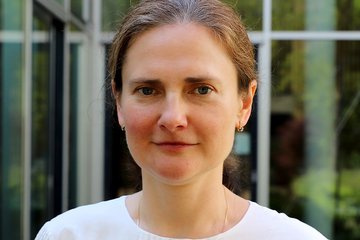
Social Entrepreneurship as a Model for the Future
Legal assessment of a new economic sector
Addressing social challenges with entrepreneurial means has become a global trend. From combating homelessness, to the inclusion of people with disabilities, to the protection of rainforests, a growing number of social enterprises are driven by a commitment to socially minded goals. Especially among the younger generation of founders, a combined focus on the common good and earning profits is seen as a desirable organizational model. However, the legal framework underlying such endeavours is still poorly developed. A project led by Institute Director Holger Fleischer is exploring this subject from an interdisciplinary perspective.
The question of just what constitutes social entrepreneurship also has a legal dimension. In Germany, there is at the moment neither a legal definition nor a specific associational form for social enterprises. “New initiatives, concepts, and organizational forms are constantly being developed by and for social enterprises. Most recently, the basic underlying idea has been welcomed in terms of legislative policy,” says the legal scholar and economist Fleischer. In 2020, the European Commission dedicated a nearly 200-page report entitled “Social Enterprises and their Ecosystems in Europe” to the topic, and in December 2021 the Commission presented a “Social Economy Action Plan”. In 2023, the OECD published guidelines on the legal framework for a social and solidarity economy. In Germany, the current ruling government’s coalition agreement states that a modern corporate culture also includes new forms of association such as social enterprises and proposes developing a national strategy for social enterprises so as to provide greater support for public welfare-oriented businesses and social innovation.

“New initiatives, concepts, and organizational forms
are constantly being developed by and for social enterprises.
Most recently, the basic underlying idea has been welcomed
in terms of legislative policy.“
– Institute Director Holger Fleischer –
Social innovation and economic transformation
Under a traditional classification, the economy can be divided into three sectors: the state, the private sector, and the social economy. The latter traditionally includes foundations, charitable associations, non-profit limited liability companies, and other non-profit entities, which are often generally referred to as non-profit organizations. According to Fleischer, this model could prove too narrow for the increasing phenomenon of social enterprises, as defining such entities merely through the absence of certain features fails to capture their essence. Rather, they follow an institutional logic of their own that seeks to combine a focus on the common good with the generation of profit. Nationally and internationally, there is therefore increasing talk of an emerging "fourth sector".
A breadth of topics for corporate law research
From a corporate law perspective, Fleischer and his team are presented with numerous topics of research. These include the existence of a suitable range of forms of association, legal issues related to corporate financing, the implementation of a “social mission”, and preventing “social washing”.
An in-depth scholarly and jurisprudential treatment of the subject also requires a closer look at the conceptual foundations. Due to the large number and variety of actors, ideas, and organizational forms associated with social entrepreneurship, the terminology in this area is quite inconsistent. "The content and meaning associated with the terms social entrepreneur, social entrepreneurship, and social enterprise is by no means set in stone," Fleischer notes. "In order to acquire a nuanced understanding, it is useful to adopt a historical and international perspective."
Beginnings in the USA and Asia
The search for the historical beginnings of the modern social entrepreneurship movement takes us to the United States and Asia, where charismatic social entrepreneurs with inspiring ideas and vast energy emerged in the last third of the 20th century.
Our recognition of the important role played by social enterprises for economic change and social innovation owes largely to the efforts of America’s Bill Drayton, by some reverently referred to as the “Godfather of Social Entrepreneurship”. In 1980, he and a few like-minded individuals founded the non-profit organization Ashoka, based in Arlington, Virginia. It is dedicated to identifying people from all around the world who possess pioneering ideas and helping them to achieve greater success through targeted support. Today, Ashoka is active on all continents in more than 90 countries.
The best-known Ashoka Fellow and a shining example for many social entrepreneurs is Muhammad Yunus, an economist from Bangladesh who studied at Vanderbilt University. In 1976, he founded Grameen Bank, based in Dhaka, which grants micro-loans without a requirement of collateral to micro-enterprises run mainly by women, thereby helping them escape abject poverty. As “Banker to the Poor” – the title of his autobiography – Yunus was awarded the Nobel Peace Prize in 2006 together with the Grameen Bank.
“The task of preventing ‘social washing’ deserves particular attention. The issue
in this regard is ensuring that companies act in accordance with their declared
‘social mission’ and that sanctions become available for misleading statements
about the implementation of self-embraced social responsibility.”
– Institute Director Holger Fleischer –
Italy as pioneer
Social enterprises emerged and flourished on Italian soil as early as the 1970s. Initially, this was a grassroots movement in response to grave weaknesses in the state welfare system. From the 1980s onwards, these entities were loosely organized as a type of cooperative, which only took on the more defined form of a cooperativa sociale following passage of legislation in 1991. In 2005, lawmakers introduced the legal status of an impresa sociale in order to make other forms of association outside the cooperative sector equally available to social enterprises. In 2017, the third sector was newly structured by legislative decree.
Germany as latecomer
Here in Germany, it was only towards the end of the 1990s that social entrepreneurship gained a foothold. In 1998, with the aim of promoting social innovation, Klaus Schwab, the founder of the World Economic Forum, established the Schwab Foundation for Social Entrepreneurship together with his wife Hilde. Yet Fleischer points to other earlier role models as well: “Friedrich Wilhelm Raiffeisen, one of the two founding fathers of the German cooperative, was a social entrepreneur avant la lettre whose model was not dissimilar to that of Muhammad Yunus.” Presently, the estimated number of social enterprises in Germany ranges from 2,000 to 70,000, most of which are still in the implementation and growth phase.
Unanswered questions
Globally, it is expected that social entrepreneurship will expand considerably. Questions about their legal footing will therefore continue to grow in importance. “Considerations and discussions at both the national and international levels need to focus on what speaks for and what speaks against separate rules for social enterprises and how these should be structured,” explains Fleischer. “The task of preventing ‘social washing’ deserves particular attention. The issue in this regard is ensuring that companies act in accordance with their declared ‘social mission’ and that sanctions become available for misleading statements about the implementation of self-embraced social responsibility.”
Header: Johanna Detering with graphic elements © AdobeStock, j-mel
Portrait Holger Fleischer: © Max Planck Institute for Comparative and International Private Law / Johanna Detering












